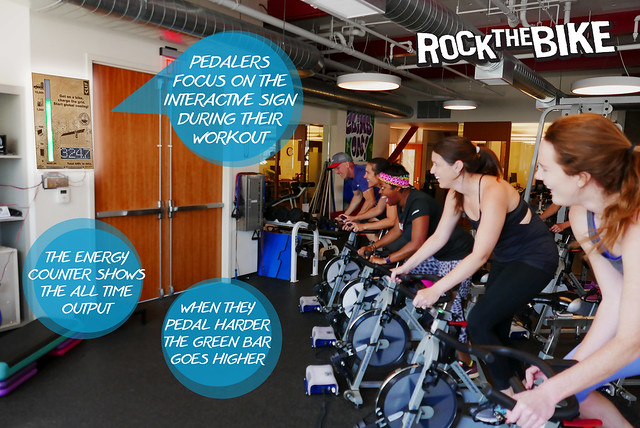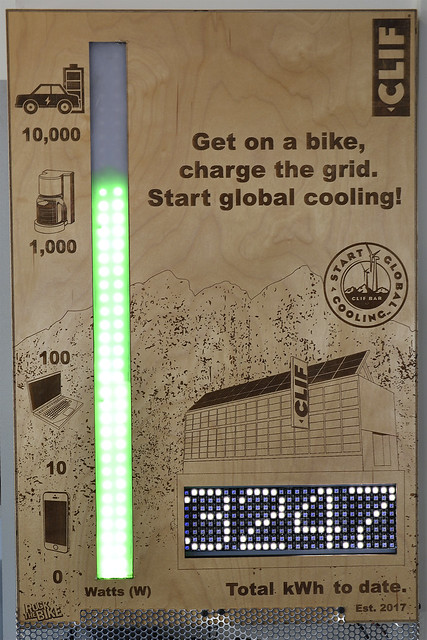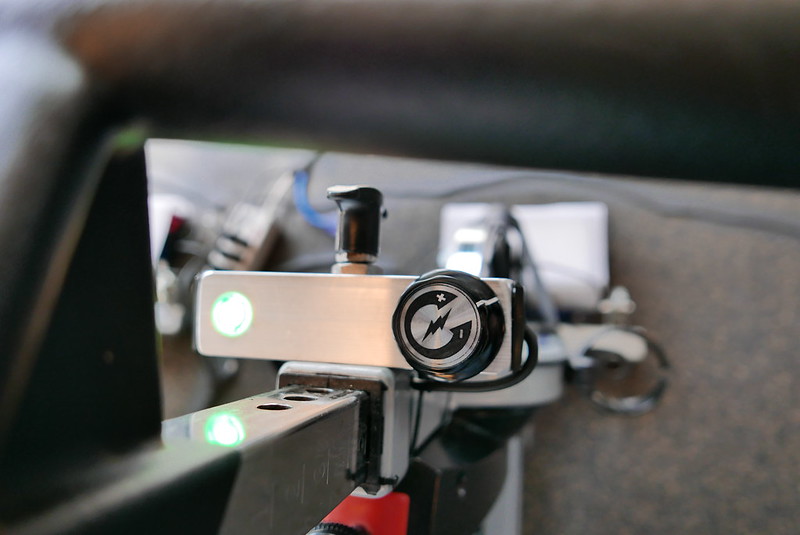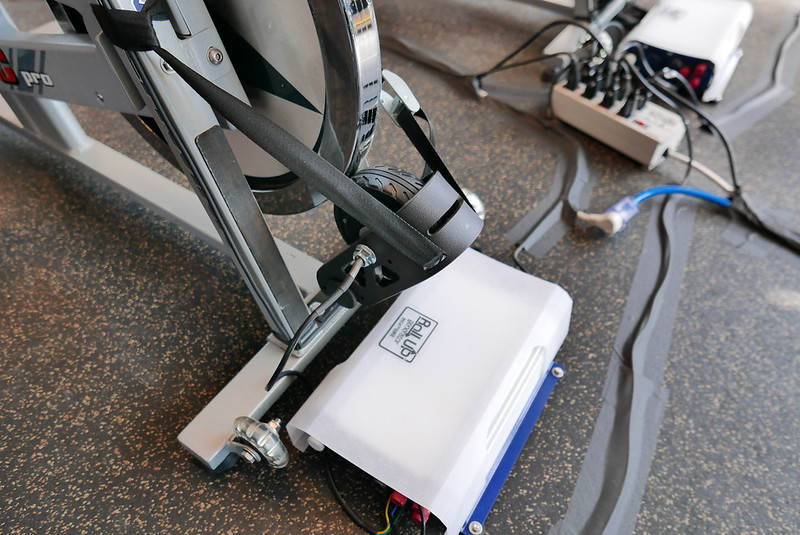Rock the Bike has rocked events around the Bay Area with our message of pedal-powered revolution. We’re ramping it up – for the first time, people who take their daily spin class will wire back the energy generated by their workout into their electrical grid, helping to power their work place as they get inspired to bike towards a lower carbon footprint.

We sold Clif Bar a system comprised of twelve individually controlled Roll Up generators compatible with their spin bikes and a smart circuit that displays the power and energy generated by the class. This energy goes back into the grid through standard wall sockets, thus requiring less from coal and gas plants.
We committed to delivering a workout equal to the spin classes Clif Bar employees were used to. In order to achieve this, we put a ton of engineering into the electronic resistance knob. It has been a frequent request for people at our concerts to be able to set their own resistance, and we’ve finally succeeded in creating this feature. Without a doubt, it is the most technically evolved piece of green engineering to grace a spin class – and it’s what will allow Rock the Bike’s technology to integrate seamlessly with other classes.


The all-important difficulty knob! (and status LED)
A pedal-powered spin class creates change on two levels. It enhances the health and fitness of participants, and while they are high on endorphins, it engages them with the possibility of making a difference. It’s a living, breathing metaphor for the impact of personal and collective effort. With hearts literally opened from vigorous exercise, spin participants witness how many kilowatt hours they contributed on the wall-mounted smart display. They see that their sweat resulted in real energy!
From our early days running a Bike-A-Smoothie booth at California music festivals, to our recent innovation in cell phone recharging stations, Rock the Bike has always been about making it fun to give energy back. As people power blenders to make delicious smoothies, they tie together the pleasure of physical activity with an increased understanding of the power we consume on a daily basis. And now, we’re moving from special events to daily use: for the first time our technology is being used in regularly scheduled classes.

Roll Up generator interfaces with the steel flywheel of the spin bike as shown.
We are thrilled to have launched this with Clif Bar & Company. Like Rock the Bike, Clif Bar marries healthy food, active living and sustainability. We have worked with them to promote bike transport before, and we are eager to help them expand the ways in which they build a greener world, and this project was green through and through. First, we were able to retrofit the Clif Bar bikes, only adding a small amount of gear to each, so they did not have to get rid of any of their fleet. Second, their headquarters are only a few short blocks from Rock the Bike and all of the deliveries and visits were done by bike.
Clif Bar employees have enthusiastically taken to the bikes, even using them outside of spin classes to get a workout while they contribute to a more sustainable city. The potential of this sort of technology has long been obvious to many: at events, a shared fantasy of “spin classes to power the town” comes up repeatedly. We’re excited about how ready this technology is to serve the function that the community has been requesting. Beyond the immediate energy-saving benefits, it offers myriad creative opportunities for educational and immersive experiences. For example, by engaging with a smart sign that displays their energy output, class-goers can truly appreciate the power they would save by reducing their car use.
For our part, Rock the Bike founder Paul Freedman and engineer Leif have been attending spin classes as part of our “R&D” and we’ve had fun discovering spin culture and witnessing the motivation that comes from working out alongside others. Our experience has motivated us to give back in other ways and share our bike culture with the spin world. With our common love of biking to music, we’re especially excited to merge spin culture with the community-focus of bike culture. As class participants witness what people can live and achieve together, they might even get hooked to the Bay Area’s thriving bike scene.
The next step for Rock the Bike is to find chain of spin classes that is excited about this technology and wants to implement it on a larger basis. There are so many local gyms with bikes that are ready for this simple modification and that would benefit greatly from it. Most gyms would not have to get new fleet of bikes, as our Roll Up generator is compatible with most spin bikes. And in return, they’ll get press coverage and immediate publicity, as well as increased social media engagement. As this project will provide gym-goers with an easy way to support a green project and give back to the community that fits into a busy schedule, it will increase their loyalty. The energy savings from all the kilowatt hours are measurable – probably in the hundreds or low thousands per year – but an even larger economic benefit will be the ease of selling gym memberships.
Please share this online and pass it on to your friends who run gyms. Also, you might want to read Clif Bar’s take on the same project.

